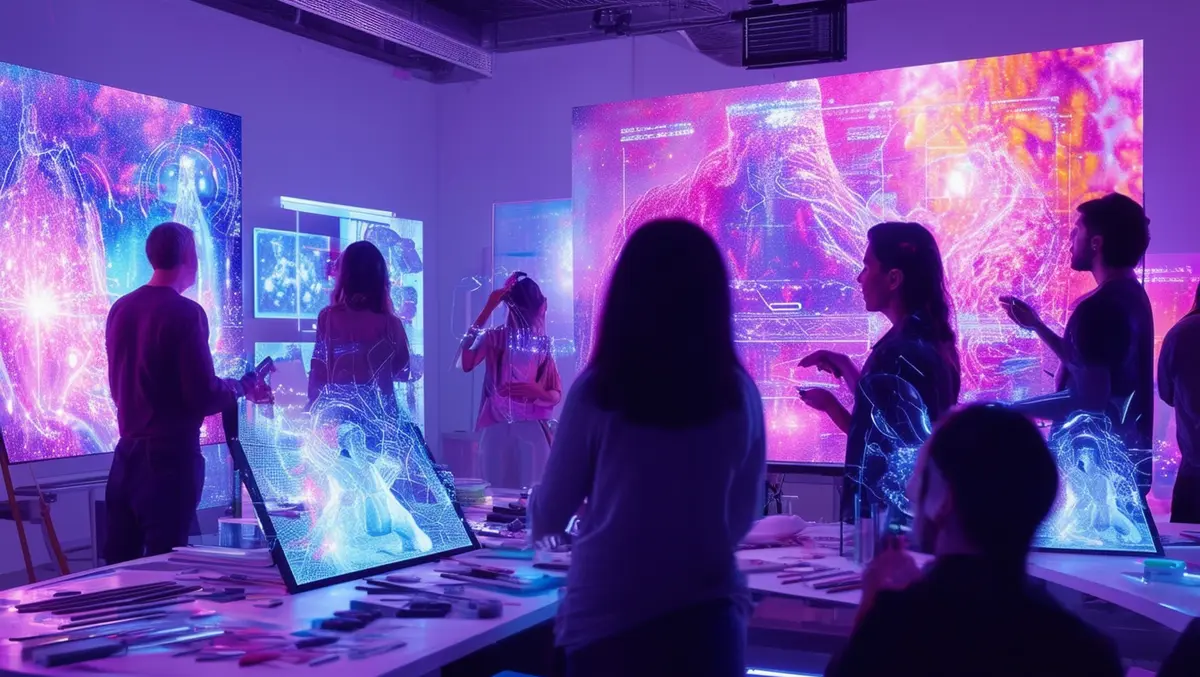
AI transforms artistic creation; 40% of artists use new tech
Creating art in the modern world is vastly different from what it used to be. As technology advances, it becomes more useful for the artistic creative process. Artificial Intelligence (AI) is no exception to this revolution.
The many steps involved in creating a piece of art can be tedious and demanding, which is why many artists welcome AI's role in lessening the work needed during the artistic process. AI technology is becoming increasingly accessible and easier to use, and the number of artists using it is also increasing rapidly.
According to a study by Arts Law, around 40 per cent of artists have adapted AI as a tool in the artistic process. The most common use of AI with these artists is during written processes, ideation, and experimentation phases. However, this method of using AI results in only a fraction of the final work resulting from generative AI usage.
Despite AI's growing presence across various industries, its role in the art world has sparked diverse opinions. While some artists have concerns about potential misuse and copyright issues, there is a strong movement advocating for thoughtful regulations to protect artistic integrity and ensure ethical AI practices.
AI's positive impact on creativity can be shown through the digital platform ColourSNP, which offers a vast library of printable colouring sheets. This platform caters to colouring enthusiasts of all ages, allowing them to generate custom designs based on their interests. ColourSNP's generative AI tool encourages users to explore their creativity and imagination, making art accessible and fun for everyone.
This tool promotes creativity in children and other users so that they can colour in whatever their imagination allows. Providing this generation tool allows these children's guardians to generate a design that they can colour in, which they may not have been able to otherwise.
Some artists may be unsure whether AI would impact their creative process. There is an opportunity for greater awareness and education about AI's capabilities. By embracing AI technology, artists can enhance their productivity and the quality of their work, opening up new horizons for artistic expression.
Despite these advancements, the transition to modernised practices is not without challenges. Some creatives face a steep learning curve when adopting new technologies, while others may struggle with the financial investment required for advanced tools and software. However, the overall trend indicates a positive movement towards embracing innovation in the artistic community.
By adopting AI technology into the art creation process, artists will be able to create art that would have been difficult to create otherwise, whether it is shortening a process that would have taken an extremely long period of time or automating a tedious segment.
Modernising the artistic process among 40 per cent of creatives signifies a broader trend of adaptation and growth in the art world. As technology continues to evolve, it is likely that even more artists will integrate these tools into their workflows, further blurring the lines between traditional and digital art.
By adopting AI technology into the art creation process, artists will be able to create art that would have been difficult to create otherwise. Whether it is shortening a process that would have taken an extremely long period of time or automating a tedious segment, this evolution not only enhances the creative process but also expands the possibilities of what can be achieved in the realm of art.


